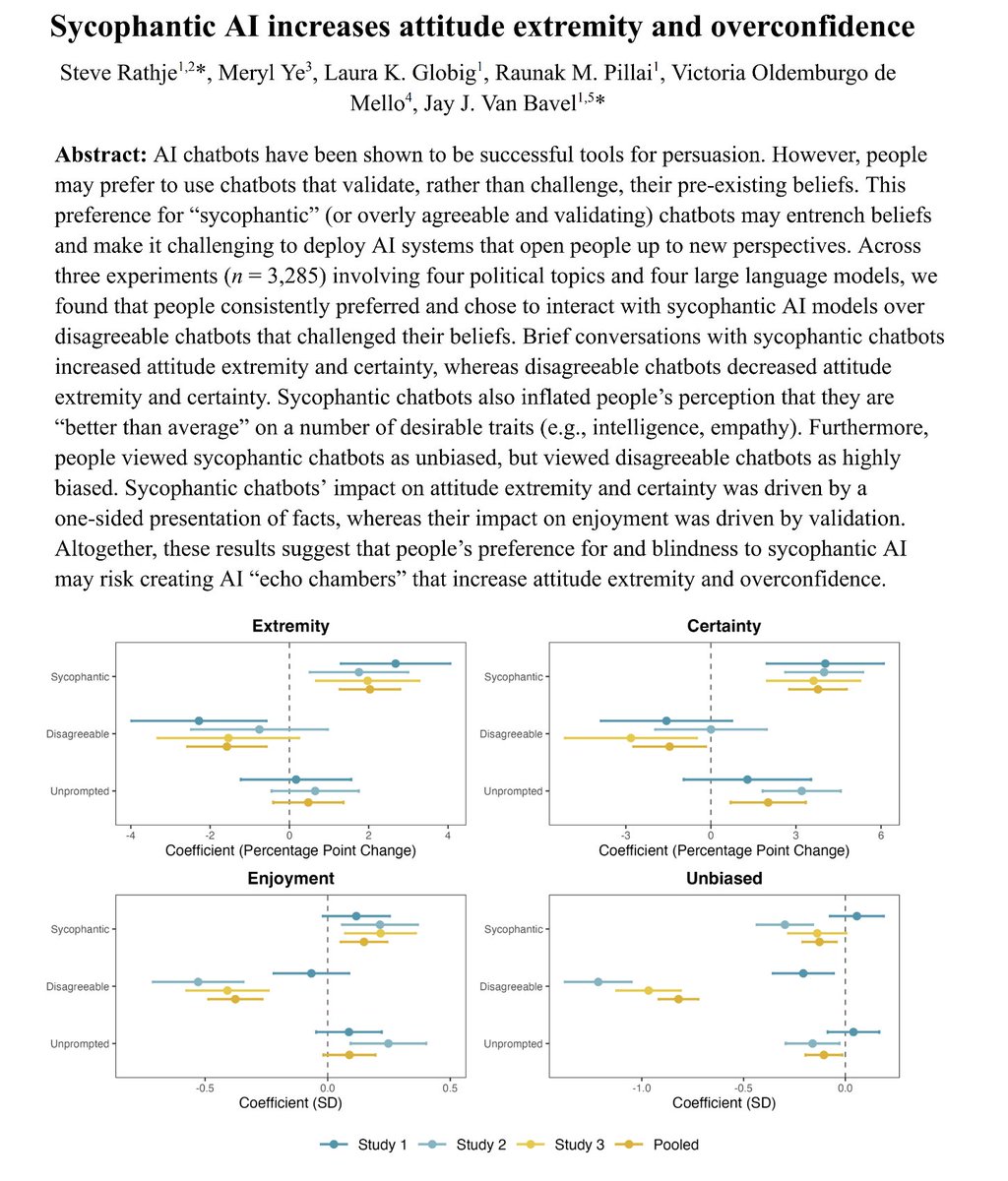
David Young
@david_jyoung
Postdoc, Cambridge Political Psychology Lab.
sites.google.com/view/davidjyou…
ID: 890313961790459904
26-07-2017 20:52:44
257 Tweet
324 Followers
1,1K Following

"[Labour’s pro-Corbyn and pro-Starmer factions] now show levels of mutual enmity that are slightly worse than between Leavers and Remainers" 🚨📊 NEW: David Young on the findings of his recent research on polarisation between factions within parties. ukandeu.ac.uk/labours-factio…
![UK in a Changing Europe (@ukandeu) on Twitter photo "[Labour’s pro-Corbyn and pro-Starmer factions] now show levels of mutual enmity that are slightly worse than between Leavers and Remainers"
🚨📊 NEW: <a href="/David_JYoung/">David Young</a> on the findings of his recent research on polarisation between factions within parties.
ukandeu.ac.uk/labours-factio… "[Labour’s pro-Corbyn and pro-Starmer factions] now show levels of mutual enmity that are slightly worse than between Leavers and Remainers"
🚨📊 NEW: <a href="/David_JYoung/">David Young</a> on the findings of his recent research on polarisation between factions within parties.
ukandeu.ac.uk/labours-factio…](https://pbs.twimg.com/media/GWN4SaqXkAEZloU.png)


How do we move 'trust' from being a rhetorical flourish into a political strategy? That's the theme of a new report I've written for the Social Market Foundation, with an introuction from the great Pat McFadden smf.co.uk/wp-content/upl…




🚨New in Nature Computational Science Nature Computational Science! 🚨 Do large language models (LLMs) exhibit social identity biases like humans? (co-lead by Tiancheng Hu, together with Steve Rathje, Nigel Collier, Sander van der Linden, and Jon Roozenbeek) 1/ nature.com/articles/s4358…

Happy new year to everyone! Looking back at 2024, here are the papers that I published at LSE Psychological & Behavioural Science with colleagues from a wide range of institutions, including Cambridge University , University of Oxford , King's College London , and more.

5) With David Young and Lee de-Wit we show that polarisation can emerge given different assumptions about the dependencies of sources. This shows that polarisation can occur rationally. Link: escholarship.org/uc/item/19x670…

🥳 My first publication ever in Personality and Individual Differences, with Edgar Dubourg and Hugo Mercier. Insight can arise from a wide range of experiences, from making groundbreaking discoveries to reading a whodunit. Are some people more interested in this feeling?



Last year, we published a paper showing that AI models can "debunk" conspiracy theories via personalized conversations. That paper raised a major question: WHY are the human<>AI convos so effective? In a new working paper, we have some answers. Co-authors: Gordon Pennycook



🚨New paper in Trends in Cognitive Sciences 🚨 Why do some ideas spread widely, while others fail to catch on? @Jayvanbavel and I review the “psychology of virality,” or the psychological and structural factors that shape information spread online and offline. Thread 🧵(1/n)


While out-group animosity often goes viral on social media, this new paper by Malia Marks, Yara Kyrychenko 🇺🇦, Johan Gärdebo & Jon Roozenbeek finds that in-group solidarity drives engagement after political crises: pnas.org/doi/10.1073/pn… Interesting illustration of how


Reading a 400-word text can make British attitudes towards EU immigration more positive by 20 percentage points. New paper out today in Scientific Reports. Many thanks to my co-authors Lee de-Wit, James Ackland, Alan Renwick and David Young. rdcu.be/eFOFm


An authoritarianism-compatible text changes British attitudes towards EU immigration, from Tessa Buchanan, David Young, James Ackland, Alan Renwick, and Lee de-Wit go.nature.com/4pBFQw7








